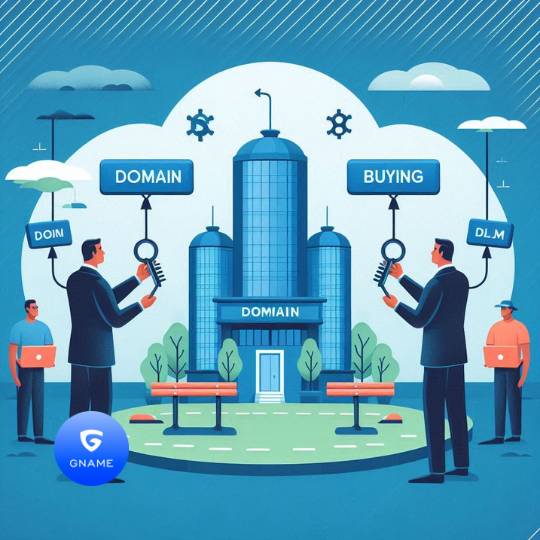In the digital age, acquiring a domain name is one of the most crucial steps for establishing an online presence. Businesses and individuals alike face a pivotal decision: should they lease a domain or buy it outright? This blog post will explore the advantages and disadvantages of both methods, provide insights into the leasing process, and discuss the factors to consider when making your choice.

Understanding Domain Leasing
Domain leasing is a relatively new concept that allows individuals or businesses to use a domain name for a specified period without purchasing it outright. This method can be particularly attractive for startups or small businesses that may not have the capital to invest in a premium domain. Leasing typically involves a recurring fee, and the terms can vary widely based on the domain's perceived value and the negotiation between the parties involved.
One of the main benefits of domain leasing is the lower upfront cost. Instead of paying a large sum of money for a domain, businesses can allocate their funds to other critical areas such as marketing or product development. Additionally, leasing allows for flexibility; if the business outgrows the need for that particular domain or if the market changes, they can easily switch to a different domain without the burden of a large financial commitment.
However, leasing does come with its drawbacks. Since the lessee does not own the domain, they may face restrictions on how they can use it. For example, certain leasing agreements may prohibit specific types of content or limit the ability to transfer the domain to another party. Additionally, businesses may find themselves in a precarious position if the domain owner decides to sell the domain or increase the lease fee significantly after the initial term.
The Benefits of Buying a Domain
On the other hand, buying a domain outright offers several advantages. The most notable benefit is ownership. When a business purchases a domain, it gains complete control over that online asset. This means the domain can be used freely, customized as needed, and transferred or sold at any time. Ownership also enhances brand credibility; having a unique domain name can make a business appear more professional and trustworthy.
Furthermore, purchasing a domain can be a sound investment. Premium domains, especially those that are short, memorable, or contain relevant keywords, can appreciate significantly over time. This makes buying a domain not just a necessary expense, but potentially a profitable one as well. For many businesses, the peace of mind that comes with ownership far outweighs the initial costs involved.
Nevertheless, buying a domain requires a larger upfront investment, which can be a barrier for some businesses. Additionally, the process of finding the perfect domain can be time-consuming. Many desirable names may already be owned or priced beyond budget, necessitating further research and negotiation.
Factors to Consider When Choosing Between Leasing and Buying
When deciding between leasing and buying a domain, several factors should be taken into account:
Budget
: Assess your financial situation and determine how much you can comfortably spend on a domain. If cash flow is tight, leasing may provide a temporary solution while you build up resources.
Long-term Plans
: Consider your long-term goals for your online presence. If you plan to establish a lasting brand, purchasing a domain may be the better option. However, if your project is more experimental or temporary, leasing could suffice.
Control and Flexibility
: Determine how much control you want over the domain. If you require the ability to modify, transfer, or build upon the domain, ownership is crucial. Conversely, if you are okay with certain restrictions, leasing might be viable.
Market Trends
: Keep an eye on the domain market. Some domains may appreciate in value, making them worth buying, while others may not have the same potential.
Negotiation
: Whether leasing or buying, negotiation plays a vital role. Be prepared to discuss terms and prices to ensure you get the best deal possible.
Conclusion
In conclusion, both domain leasing and buying have their merits and drawbacks. The decision ultimately hinges on your specific circumstances, including your budget, long-term goals, and desire for control. By carefully weighing these factors, you can make an informed choice that will set the foundation for your online presence. Whether you choose to lease or buy, the right domain can significantly impact your brand's success in the digital landscape.






















